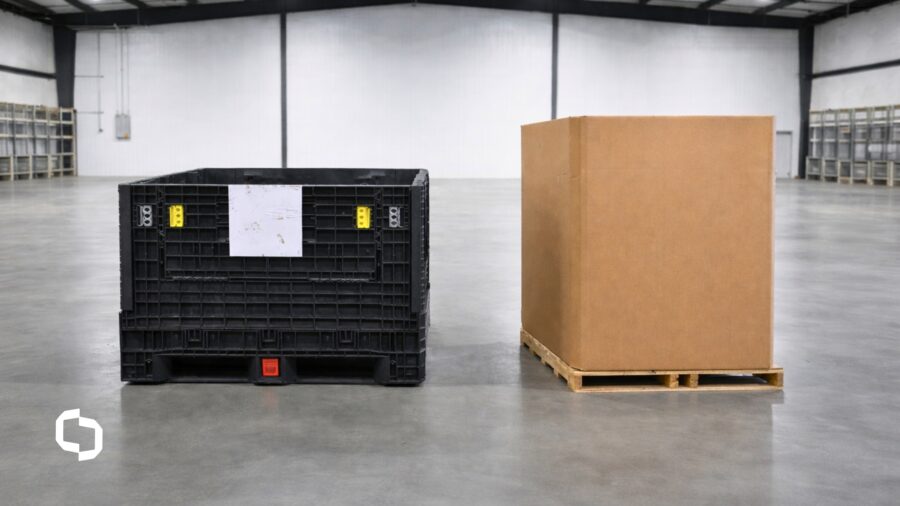What's Driving Up the Cost of Wooden Pallets?
Wooden pallets have been a long-standing staple in supply chains, yet many businesses overlook the substantial hidden costs associated with their use. From frequent replacements to unexpected repair expenses, the true cost of wooden pallets often far exceeds their initial low price.
A major cost driver is durability. Wooden pallets, while initially inexpensive, have a limited lifespan. They are prone to splintering, cracking, and breaking under the rigors of regular transport and heavy loads. Each damaged pallet necessitates replacement or repairs, significantly inflating the lifetime costs and creating constant disruptions to your supply chain.
The Hidden Maintenance and Compliance Costs
Beyond frequent breakages, wooden pallets come with additional hidden expenses. Due to their porous nature, wooden pallets readily absorb moisture, which can lead to mold and bacterial growth. This poses significant compliance and hygiene challenges, particularly in industries such as pharmaceuticals, food and beverage, and healthcare, where stringent cleanliness standards are in place.
Moreover, wooden pallets cannot be reliably used with modern automated scanning systems or robotic handling due to their inconsistent dimensions and quality. This limitation can negatively impact productivity, requiring manual handling and additional labor costs.
According to industry research, businesses often underestimate these hidden maintenance costs of wooden pallets, including ongoing pallet repair, disposal fees, and potential product damage. Over time, these expenses accumulate, resulting in a significantly higher total cost of ownership than initially projected.
Breakage, Mold & Safety: The Price You Didn’t See
Safety and product protection are additional critical factors that wooden pallets compromise. Splinters, exposed nails, and structural weaknesses can damage products, creating costly waste and returns. Wooden pallets also pose safety risks for warehouse staff, increasing potential workplace injuries and liability concerns.
Additionally, the susceptibility of wooden pallets to mold and infestation makes them unsuitable for international shipping without costly heat treatments and compliance certifications.
Extera’s Smart Solutions to Reduce Pallet Costs
Extera offers advanced plastic pallet solutions designed to address the numerous drawbacks and costs of wooden pallets. Plastic pallets are engineered for strength, consistency, and reliability, eliminating the regular need for repairs or replacements. Their durable construction allows them to withstand heavy loads and rigorous handling with minimal maintenance.
Moreover, plastic pallets offer hygienic benefits—they are non-porous, easy to sanitize, and effortlessly comply with strict industry hygiene regulations. This greatly reduces compliance-related costs and ensures your products maintain optimal integrity during shipping and storage.
Unlike wooden pallets, plastic pallets are ideally suited for automation, offering consistent dimensions that facilitate efficient scanning, tracking, and robotic handling. This compatibility enhances supply chain efficiency, reduces labor costs, and improves accuracy.
Understanding Lifecycle Costs: Wood vs. Modern Alternatives
When businesses analyze the full lifecycle cost, the economic advantages of plastic pallets quickly become clear. Although plastic pallets may require a higher initial investment compared to wooden pallets, the substantial savings over time make them a smarter financial choice. Plastic pallets provide unmatched durability, significantly reducing replacement frequency and eliminating many hidden expenses such as regular pallet repairs, disposal fees, and damage-related product losses. They also offer superior compliance benefits, dramatically lowering the risk and associated costs related to mold, contamination, and international shipping regulations.
Additionally, the compatibility of plastic pallets with automation systems enhance operational efficiency, streamlining warehouse processes and reducing labor costs. The majority of plastic pallets are fully recyclable at the end of their lifecycle, aligning with your sustainability initiatives, reducing environmental impact, and promoting responsible resource management.
Understanding the real cost of wooden pallets is the first step towards making smarter supply chain decisions. Extera’s plastic pallet solutions offer long-term value, reliability, and sustainability. Thus, your business not only saves money but also enhances its operational performance and compliance.
Ready to explore better pallet solutions? Contact Extera today, and let’s find the right solution for your business.



